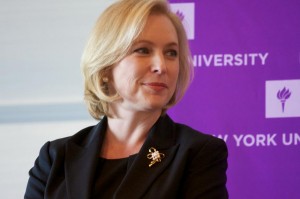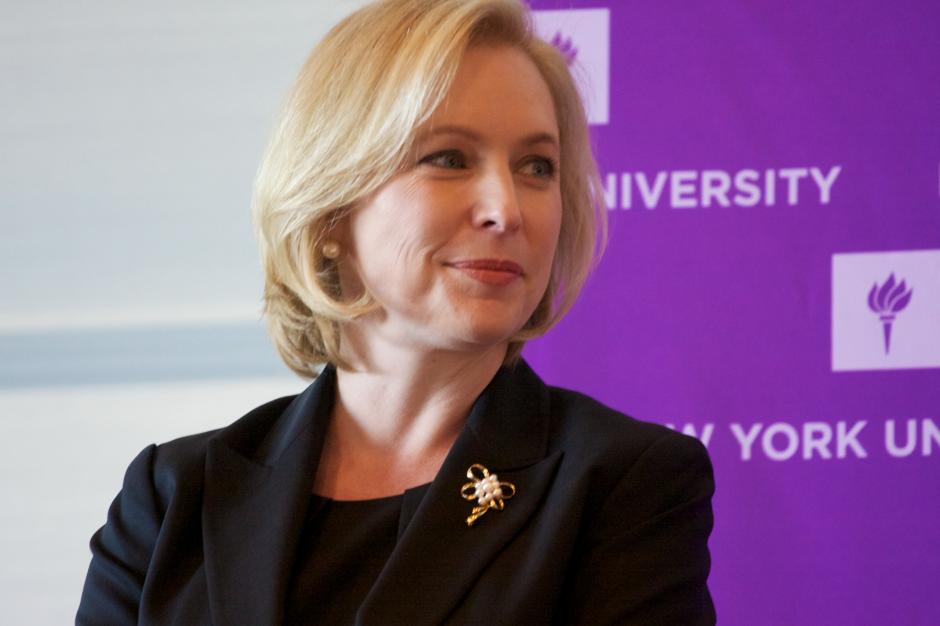
Growing up, I loved airplanes and the history of flight, and my heroes were the early pioneers – including groundbreaker Amelia Earhart, who challenged both flight records and gender norms but is now known for her disappearance.
I was reminded of this watching “The Daily Show” last week, which featured an extra-long interview with New York senator Kirsten Gillibrand on her new book “Off the Sidelines.”
Gillibrand’s book, which was released on Sept. 9, focuses on her own experiences as a woman, a lawyer and a politician, as well as the struggles of other women. I haven’t had time to read it, but from seeing her interview and knowing about her past legislative work I’d highly recommend it.
In a largely progressive college atmosphere like Ohio Wesleyan, where women are the majority and have a strong hold in leadership positions among the students, it can be easy to forget how revolutionary Gillibrand’s success is and just how recently it would have been impossible.
This is especially important to remember as signs point to a coming golden age of women’s political leadership in the United States.
Hillary Clinton, the former Secretary of State and senator (not just wife of Bill Clinton), is the expected 2016 Democratic candidate for president, and if she doesn’t run several other women have been discussed as possible candidates.
As with the black community, though, the fact that women may soon have a representative in the highest office doesn’t mean there’s equality in general society, or politics as a whole. Just look at some of Gillibrand’s experiences with sexism in the halls of power, which she details in “Off the Sidelines.”
Gillibrand, without naming her colleagues who she still has to work with, described being judged for her body, not her political work. She details comments like “You’re even pretty when you’re fat,” and “Don’t lose too much weight now, I like my girls chubby,” after post-pregnancy weight loss.
While she responds to these experiences with understandable outrage in her autobiography, she said in an interview with People Magazine that she won’t let it stop her. She wants women to gather together on issues and improving their representation, especially as the midterms approach.
“If we do, women will sit at every table of power making decisions,” she said in her book. And there’s no reason why we as men should fear this. Because really, what would we lose?
Men – specifically straight white men – have had every seat at the table for centuries, and while opening the table will mean we lose some privileges they’re not things we should have had in the first place.
Take the casual sexism Gillibrand’s experienced, or the more egregious example of Ray Rice – sure, there was a time when all this was accepted before women had strong political and social power, but should it have ever been?
Ultimately, though, change is coming no matter what – to use a fitting metaphor, women don’t need us to move a seat at the table out for them, they’re going to take it themselves.
In political terms, it may be in the midterms; it may be in 2016, but with women gathering their power and equal pay, reproductive rights and sexual violence in the military and colleges all on the national conversation, it’s happening. Unlike other marginalized groups, women have an equal to higher percentage of the population, giving them the voting power on their own.
But while they can have the power to do it alone, they shouldn’t have to. We can all play a role, not by leading but by supporting with our votes, donations and our talents, whatever they are.
